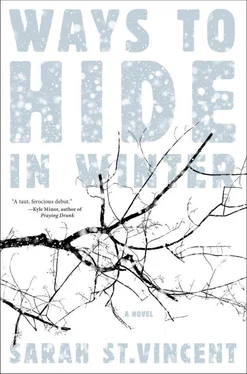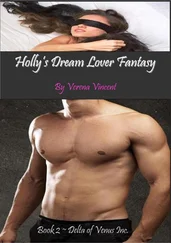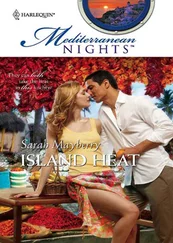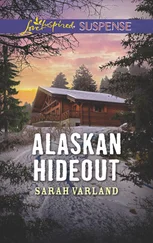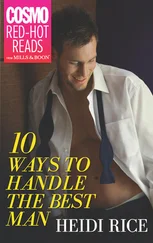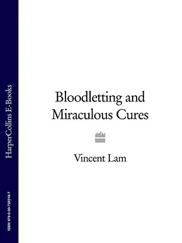There was a burst of dust, a sound so loud I thought a grenade had been dropped in my lap. Then it was over.
He hadn’t been wearing his seatbelt, even though he’d put mine on. He went over the steering wheel, into the glass.
And that was that.
Later, I would hate him for having done it, for having done all of it on purpose, but by then it was too late. Whatever words I had for him were just empty sounds. What can you say to a dead man, especially one who’s already been buried by the time you can sit up, by the time you can once again say your own name?
I went to the chapel once, the one in the hospital, while I was still in the wheelchair. It was nearly Easter. Most of the stitches were out by then, although the bones would take much longer to heal. It was a Protestant service, and the minister was giving a sermon on Matthew, the part that describes the Last Supper. “And Jesus said,” he intoned, like someone who was trying to make himself sound important, “‘This is my blood of the covenant, which is poured out for many for the forgiveness of sins.’” I began to titter, then laughed so loudly they had to wheel me out of the place. The pouring out of blood, as I could have told him, had nothing at all to do with forgiveness. Blood was blood, and suffering was suffering. It didn’t redeem anyone. It couldn’t. The world went on exactly as it had before, regardless of whose blood had been poured out for what reason. Jesus, I thought, had known what was in store for him and had only been trying to give it a meaning, to make it something other than the useless and routine act of cruelty it was.
The hospital psychologist told me I was very articulate.
I drove on in the Jeep, the miles passing. Very early in the morning, I reached New York, passing through a tunnel and emerging into a confusing thicket of streets, narrow and dark save for the few bars that still seemed to be open. Somewhere near a park, I pulled over, locked the doors, and climbed into the back of the car, pulling a blanket over me so I would be hidden from view, like a rabbit in a nest. When I woke up, my head aching, the sun had just begun to rise and I found that I had a parking ticket. I brushed my teeth with a bottle of water from the trunk, spitting into the gutter, and slipped the angry-looking sheet of paper into my pocket. At least the car hadn’t gotten towed with me in it.
People began to appear in the street, most of them looking as if they had been out all night, the men rumpled, the women in sparkling disarray. One of them pointed me toward a convenience store, where I bought a city map, but I was already so impossibly lost that the grid of streets might as well have been a foreign alphabet. As I drove, the streets became canyons, surrounded by buildings that seemed soulless, the dull stone and glass interrupted only by a thumbprint-sized park here and there.
Finally I saw a bridge, a strangely ornate-looking one, and crossed it, half hoping it would take me out of the city but also thinking it might show me why I’d come here in the first place, why I’d thought that getting lost here, disappearing, might be the first step to a new life, might erase the previous twenty-four hours. For the moment, life seemed the same, except that I was now trailing a taxi—the first one I’d ever seen—and had no idea where I was.
On the other side of the bridge, the buildings seemed shorter, more open. I looked up and saw birds turning in wide circles: seagulls. In Centerville, we only saw them rarely, when they were driven inland by storms. But I was certain that was what they were.
Of course, I thought.
The sea.
I stopped to buy a doughnut and began to feel, if not better, then at least slightly more myself. I looked at the map again and followed what seemed to be the main road, even though it was taking me the opposite of the way I’d originally planned to go. I liked it better out here than in the place where the highways and tunnels had first deposited me. The buildings were still crowded together, but in a kind of matter-of-fact, shrugging way that somehow reminded me of home, even though there was no real resemblance.
At last, the road ended, and there I was, staring out at the sand, the boardwalk. Beyond that, I was sure, must be the ocean.
I stopped and climbed stiffly out, rubbing my face. The air had a smell, a feel, that was new to me. I stood still for a moment, then started to walk.
The shoreline, when I reached it, was narrow and dirty, the brown sand strewn with rocks and glass and bottle caps. No one was there; it was still almost too cold to be walking in such a place, let alone swimming. But there it was, the water, dark and rippling and stretching to my right and left as far as I could see. The wind blew my hair into my face as I knelt and touched a wave that had approached me. It seemed softer than the lake water somehow, warmer, darker, gentler. When it receded, it left behind a white foam, which was soon overtaken by the next wave.
Squatting there, I turned my face up to the sun. I imagined the stranger sitting beside me.
There was a dry throb in my chest, and I gripped my hands together, holding them against me, clenching my eyes shut.
Sand stung me, rough against my face.
I wanted you to be different. Oh, I wanted you to be different.
The waves crept forward, touched my shoes, crawled back. My fingers slid up my arms until I was clutching my elbows, holding myself in a tight knot, rocking back and forth, feeling something break open. Like lava released from the center of the earth, it rushed to the tips of my fingers, the roots of my hair.
Heartbroken, I thought. It was a word I’d never thought much of. But it was the right one, and I felt it in the depths of me in a way I never had before. In a way I’d never let myself.
It was like breaking; it was. It was like splitting in half. As if I would pour out of myself and dissolve into the water, spread out in a film of pain.
I opened my lips, making a voiceless sound.
The waves approached me and receded, slowly carving hollows around my feet. I stayed there for a long while, thinking about what I knew, what I didn’t. What, if anything, I could choose not to know.
After a time, I raised my head again. My eyes were dry even though I felt as if I’d been weeping for days.
Slowly, I stood.
I didn’t know what he was, who he was; I never would.
And I chose that, I thought. I chose not to know. Not to carry it with me, let it bind me, chain me up and drag me down and leave me trapped as the years went by, all those moments I would never get back once they were gone. I chose not to forgive him, and I chose not to refuse to. I chose not to look back on the decisions I’d made. They were over. He was gone. Nothing I could do would change that, would let me see him again, ask the questions that would fill this void, this terrible abyss in my center. The truth wasn’t what mattered. An hour from now, I would still be here. I would wake up tomorrow, and the day after that. That was what I had to think about.
There was an empty plastic bottle floating on the water, and I waited until another wave brought it in. I stooped to catch it, then turned and walked away.
By the boardwalk, where the sand was drier, I filled the bottle with the loose grains, tucking it into my sweatshirt. Briefly, I faced the water again.
I missed him, this Daniil. I missed the person I had known. I could admit that. And I did; I did admit it. I could feel his absence.
And if he had been an illusion, then I missed the illusion.
There were voices behind me, and a gull cried, sweeping overhead.
I turned to go.
On the streets past the boardwalk, people were emerging, striding briskly off to work, opening shops with clangs and clatters, lugging grocery bags. In a souvenir store, I bought a postcard to send to Beth and, after a moment of thought, one for John. Then I climbed back into the Jeep—removing another parking ticket, which I stuffed into my pocket—and drove back the way I had come. Looking at the world through my own eyes, moving in my own body. Solid and real.
Читать дальше
